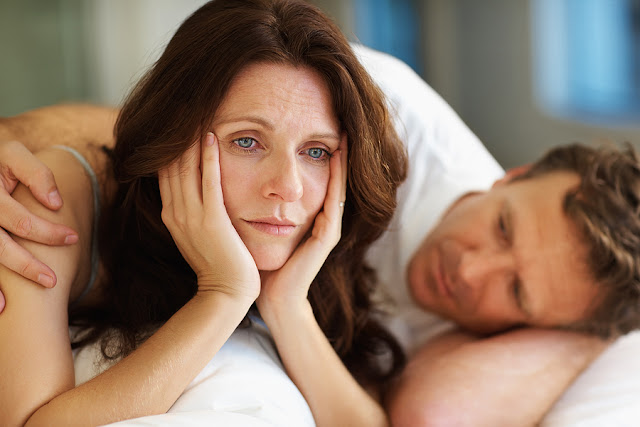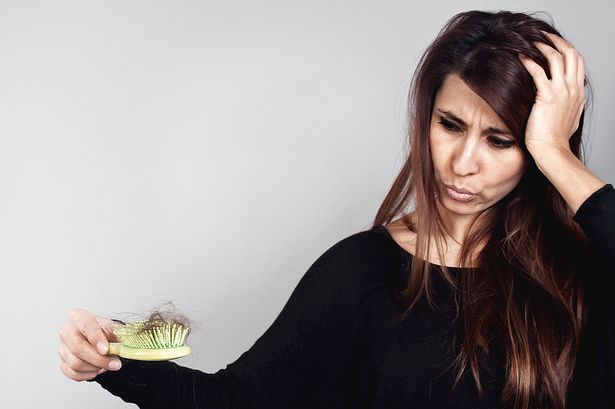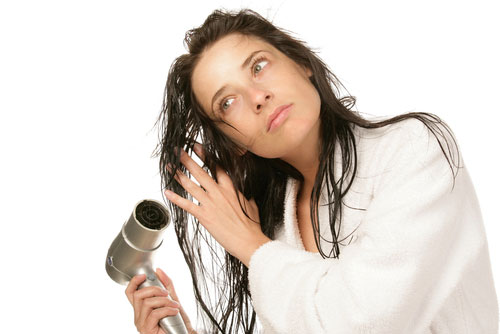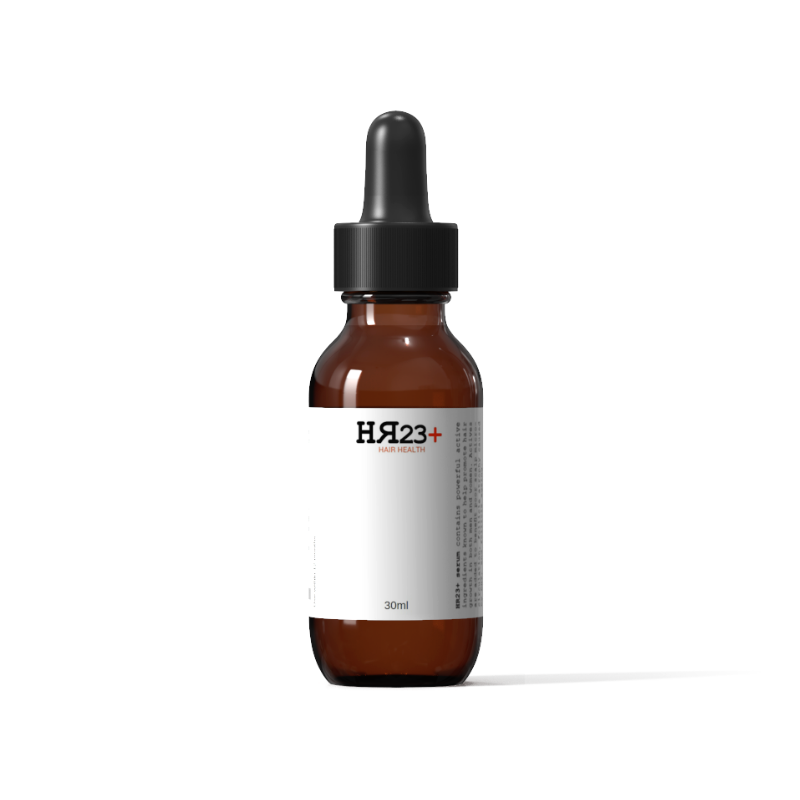
How can menopausal hair loss be minimised?
Research suggests that a hormonal imbalance causes hair loss during menopause. Specifically, it’s related to a lowered production of estrogen and progesterone. These hormones help hair grow faster and stay on the head for longer periods of time.
Over 50% of women will experience thinning hair by the age of 40. Over 60% of women will suffer from hair loss during menopause, and although menopausal hair loss is usually temporary, there are still a high number of women who experience it long term.
Can menopausal hair loss be prevented?
Tackling any hair loss type is tricky enough, and menopausal thinning is no different. Treating menopausal hair loss is not easy, but it is possible, and there are a variety of treatments and general things you can do to minimise it, and even stop it.
Ways to minimise hair loss during menopause
Before we look into specific treatments for menopausal hair loss, let’s first look into some ways that hair loss can be minimised during menopause.

Reduce stress
One of the main causes of hair loss, during menopause, or otherwise, is stress. Reduced estrogen production can affect your brain chemistry and cause mood swings, anxiety, and depression, as well as thinning hair. Implementing meditation, yoga and other breathing relaxation methods can be effective in reducing hair loss during the menopausal cycle. Exercising and being active regularly can also help reduce stress and minimise hair fall.
Eat healthy
A poor diet can lead to a number of unwanted things, with hair loss being one of them. Eating a balanced, low-fat, high protein diet can help prevent excessive hair shedding during menopause. When it comes to your diet, your hair is no different to your skin – you are, quite literally, what you eat.
You should be looking to add some key hair beneficiary foods into your daily eating plan, such as; fish, eggs, lentils, spinach, avocado, nuts, fruit, olive oil and grains. Keep junk food to an absolute minimum, and be sure to drink plenty of water. Staying hydrated will help you lose less hair.
Avoid heat devices
If you are already prone to hair fall during menopause, then you should avoid using hair style heat devices, such as hair straighteners, and hair dryers. Or, as a compromise, turn the heat levels down when using the device.
Heat devices can cause damage and breakage to the hair, which is fine if you are a teenager with strong locks. However, if you are suffering from weak, thinning hair, then its recovery time will be longer, and this sort of damage to the stands can have long term effects.

Massage the scalp
Although research is still relatively limited, studies show that while scalp massages can’t cure hair loss, they can help promote hair growth. This technique can reduce hair loss by dilating the blood vessels underneath your scalp. Massaging the scalp encourages more blood to rush through your head, delivering more nutrients and removing waste products from your hair follicles. With better blood circulation, your hair follicles are more likely to stay strong, paving the way for hair growth.
Use your fingertips, or a scalp massaging tool, to apply light to medium pressure to your scalp, moving in small circular motions. Work your way across your scalp to cover all the desired areas. Do this for 5-10 minutes a day.
Treatments for hair loss during menopause
Treating hair loss is not an easy task, but it is achievable. There are some hair loss treatments on the market that can help prevent hair fall, as well as promote the function of healthy hair growth.
Here are some of the most effective hair loss treatments available on the market.
Minoxidil (Regaine/Rogaine)
Minoxidil, most commonly recognised as Regaine (or Rogaine in the US), is the only medically approved topical treatment for hair loss. The 2% solution for women can help minimise hair fall, and help encourage hair growth, however, the formula is generally used for female pattern baldness.
As effective as minoxidil can be, it can also give negative side-effects, such as swelling on the breasts and ankles, headaches, dizziness, weight gain, skin rash, and fatigue. Therefore, as a precaution, you should speak to your doctor before using medical treatments.
Keratinocyte Growth Factor (KGF)
Keratinocyte growth factor (KGF) is an important endogenous mediator of hair follicle growth, development, and differentiation. Normalisation of the nu/nu follicular differentiation defect and amelioration of chemotherapy-induced alopecia.

Most commonly used in a topical serum, KGF can help prevent excessive hair fall, and support the healthy function of hair growth. It is especially useful for women who are experiencing thinning hair. What’s more, KGF is both safe and effective, which means you won’t ever have to compromise on your health and wellbeing.
Multivitamin Hair Supplement
Although there is still little research to suggest that individual vitamins can encourage the hair to grow faster, deficiencies in specific vitamins can lead to hair loss or thin, brittle hair. Consuming enough of each vitamin in the diet may help keep the hair healthy.
Some multivitamin hair supplements have shown to prevent hair shedding, and promote healthy hair growth, and they are also safe, with zero negative side-effects. The market leader, HR23+, has shown to help prevent hair loss and encourage hair growth in men and women. 91% of female users saw visible improvements in their hair after just 12 weeks using HR23+ hair supplement.
OGX Biotin & Collagen Shampoo
Shampoos will not cure hair loss, but some of them work well with other treatments to help reduce hair fall, and add thickness and volume to the strands. OGX Biotin & Collagen shampoo is a good shampoo that works particularly well with the products mentioned above. The key is to not over wash your hair, therefore 2-3 washes a week with this shampoo should more than suffice.
–
Conclusion
Menopause can be a challenging time to go through as it is, without hair loss making it worse. So, to defend against thinning hair, you will need to act early, and be proactive.
Try the simple tips at home, and then consider some of the treatments suggested. The combination of both will enable you to minimise shedding, and enjoy healthier hair growth.
Hair loss doesn’t have to be a constant worry. It can be tackle, both safely and effectively.

